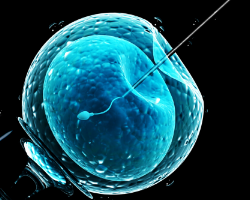
Fertility Testing is a sensitive topic, especially when you suspect there could be underlying issues affecting your ability to get pregnant. If you are under the age of 35 and have been trying to conceive for a year (or over 35 and have been trying for six months), you may want to consider talking to a fertility specialist about fertility testing. In this post, we’ll discuss how specialists test for common fertility challenges and the different fertility tests you can expect to take.
What fertility tests are there?
Before beginning any physical tests, your doctor will ask you a series of questions about your lifestyle and medical history.
These questions will likely cover topics like:
- Drinking or smoking habits
- Your body mass index (BMI)
- Your menstruation and ovulation calendar
- Any previously-diagnosed sexually-transmitted infections (STI)
- Other sexual challenges
- Any medications, food supplements or vitamins you are taking
Always be open and honest during this discussion. You should also let your doctor know if you have a family history of infertility or early menopause.
Fertility tests for women
After an initial consultation, your doctor will recommend a variety of fertility tests. These will likely include the following.
1. Antral Follicle Count (AFC)
A transvaginal ultrasound is probably one of the first tests your doctor will perform. This captures an image of your follicles and ovaries to test what is called your ovarian reserve.
The number of follicles growing on the surface of your ovaries can indicate how many eggs would likely be retrieved if the ovaries were stimulated during a fertility treatment, like in vitro fertilization (IVF).
2. AMH Levels
Your doctor can also run another test to determine your ovarian reserves: the AMH test.
A blood test will measure levels of the anti-Mullerian hormone (AMH) in your body. A higher AMH generally means the ovaries have a larger reserve of eggs. Again, this can be helping your doctor determine if you’re a good candidate for a fertility treatment, like IVF.
3. FSH Levels
Follicle-stimulating hormone (FSH) stimulates the follicles on your ovaries to produce an egg.
As ovarian function slows down with age or because of other health issues, more FSH needs to be released. An elevated FSH level may indicate that a woman’s ovaries are no longer producing eggs.
Other hormonal fertility tests
A woman’s ability to conceive is determined in large part by the hormonal balances in her body. If hormones are not secreted in the right proportions, a woman’s reproduction process can be affected. Your fertility specialist may suggest additional tests.
Fertility tests for men
Fertility issues can be just as common in men. According to the U.S. Department of Health and Human Services, a third of all fertility issues occur because of fertility problems in men.
For this reason, a semen analysis is typically the first step in assessing a man’s fertility. Typically, you can gather the sample in the clinic or at home.
With this sample, your doctor will analyze your sperm’s:
- Count
- Motility (what percentage are moving correctly)
- Morphology (what percentage are normally shaped)
They may also suggest additional testing, depending on your personal health history.
Additional fertility tests
If the tests previously mentioned are inconclusive, your doctor may suggest other types of advanced fertility tests.
For some women, a hysterosalpingogram (HSG) is indicated. An HSG can show if your fallopian tubes are open and can produce images of the uterus and any growths that might be inside, such as fibroids. Additional testing may also include more invasive procedures, such as laparoscopy or endometrial biopsy. If your fertility specialist finds abnormalities, such as endometriosis or other adhesions, they can help treat them to improve your chances of conceiving.
Learn more about fertility testing in New Orleans
For more posts about getting pregnant, follow The Fertility Institute blog today!
If you’re in Louisiana, contact The Fertility Institute to talk to one of our fertility doctors about your pregnancy journey. Our doctors can determine whether you’re a good candidate for in vitro fertilization (IVF) or another type of fertility treatment.
We’re here to help you start the family you’ve been dreaming of.



